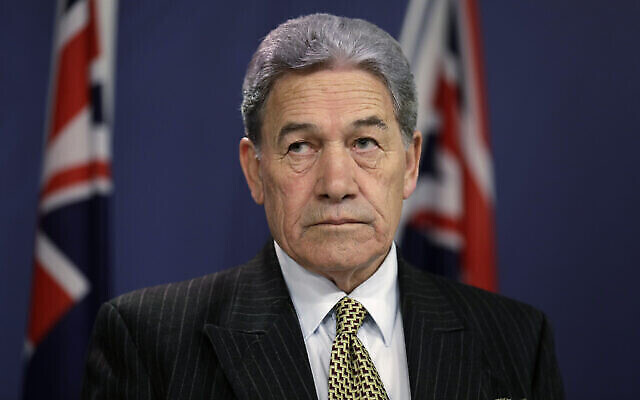New Zealand urges Israel to reconsider annexation
'The New Zealand government’s view is that annexation would gravely undermine the two-state solution, breach international law, and pose significant risks to regional security'.

NEW Zealand has joined an ever-growing list of countries expressing “serious concern” about Israel’s planned annexation of large parts of the West Bank.
“New Zealand is a long-standing supporter of Israel’s right to live in peace and security. However, successive New Zealand governments have also been clear that Israeli settlements are in violation of international law and have negative implications for the peace process,” Foreign Minister Winston Peters said in a statement.
“The New Zealand government’s view is that annexation would gravely undermine the two-state solution, breach international law, and pose significant risks to regional security. We call on Israel to reconsider these plans,” he said.
Wellington continues to support a two-state solution and a “principled and balanced approach” to the Israeli-Palestinian conflict, Peters, who is also deputy prime minister, went on to say.
The government of Prime Minister Jacinda Ardern “stands ready to assist in any constructive way we can to support this process,” he added.
“It is critical now for Israel and Palestine to work towards a negotiated, two-state solution.
“Both sides have legitimate issues and grievances and these have to be addressed through direct negotiations, with the aim of seeing Israel and a Palestinian state existing side by side, in peace and security.”
In response, Israeli Ambassador to New Zealand Itzhak Gerberg said Peters’ statement was “based on a prediction” and that the government has not yet decided what measures to take regarding a possible West Bank annexation.
— ???????? Ambassador Gerberg (@ISRAmbNZ) June 24, 2020
Peters did not refer to the fact that the Palestinians have “unilaterally abandoned direct peace negotiations with Israel since 2014” and did not call on Ramallah to return to the negotiating table, Gerberg lamented in a statement of his own issued Wednesday.
Rather, he added, it would be “constructive” and consistent with New Zealand’s policy to support Israel’s embrace of the “significant opportunity” offered by the US administration’s peace proposal.
“This plan will be pursued responsibly in coordination with the United States as well as dialogue with our Arab State neighbours while maintaining Israel’s Peace Agreements and national strategic interests with a focus on peace and security,” he maintained.
According to the coalition agreement between Prime Minister Benjamin Netanyahu’s Likud party and Defence Minister Benny Gantz’s Blue and White slate, the annexation of some 30 percent of the West Bank — including the strategic Jordan Valley and all settlements — can be brought to a vote as early as July 1, as long as it’s done with a green light from the White House.
US officials dealing with the Israeli-Palestinian conflict were planning a meeting this week to discuss the matter internally in Washington. It is currently unclear whether they will okay an Israeli annexation of the entire territory earmarked by the administration’s peace plan as part of Israel, or if they will urge Jerusalem to suffice with a smaller-scale annexation, perhaps of one or several so-called settlement blocs.
Washington has also indicated that it will support an Israeli annexation only if it has full support in the Israeli cabinet. Blue and White’s position on the matter is unclear, with Gantz suggesting on Tuesday that he tends to be in favour, while Foreign Minister Gabi Ashkenazi is reportedly opposed to any unilateral move.
An overwhelming majority of the international community vehemently opposes any unilateral annexation by Israel, including the United Nations and the European Union, as well as countries considered friendly to Israel, such as the UK, Germany and Canada.

comments